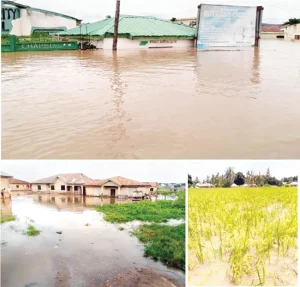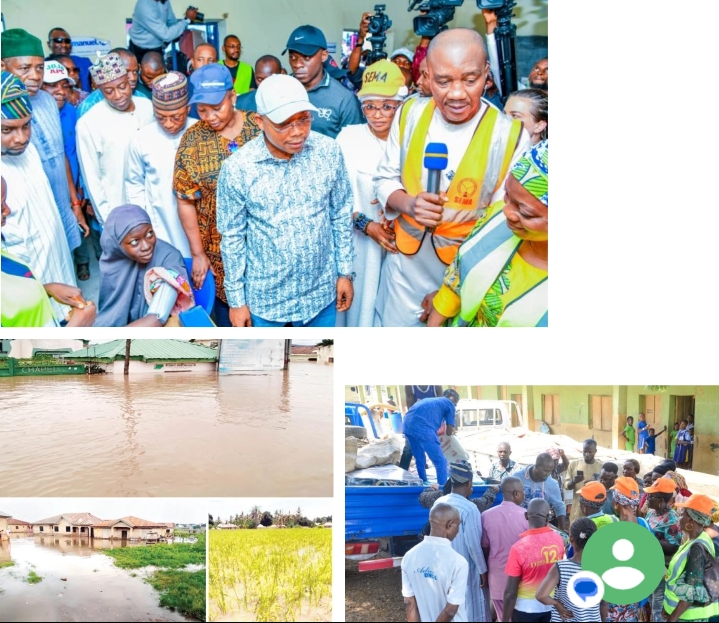By Ezurike Ugochukwu
Floodwaters have completely submerged five communities in Ibaji Local Government Area of Kogi State, Nigeria, including Ota, Ofogbo, Itima and Owara, prompting authorities to open 42 internally displaced persons (IDP) camps and urge residents along riverbanks to relocate immediately.
Kogi State Emergency Management Agency (SEMA) Executive Secretary Mouktar Atima warned that the state is entering a “difficult period” in the coming days following water releases from dams into the Rivers Niger and Benue, identifying 258 communities in eight LGAs as flood-prone.
The Kogi State government, under Governor Usman Ododo, has been credited for prompt intervention in flood management, with no casualties recorded in last year’s floods, contrasting with other states that experienced deaths.

Past experience of flood in Kogi State
“Already, five communities in Ibaji Local Government Area have been completely submerged. These include Ota, Ofogbo, Itima and Owara,” Atima said.
Mr Atima said the health ministry was critical to the state’s disaster response and commended the commissioner for measures taken to prevent loss of lives. He recalled that no casualty was officially recorded during last year’s flood in Kogi.
Responding, the commissioner of health, Adams Abdullazeez, said the ministry had started fumigating all 42 IDP camps and deployed personnel and materials ahead of possible outbreaks of waterborne diseases.
“We are aware that there may be an outbreak of diseases or an epidemic in the camps and we are fully prepared,” Mr Abdullazeez said.
He also credited Governor Usman Ododo for “prompt intervention” in flood management, noting that while other states recorded deaths last year, Kogi reported none.
Flooding has become a recurring challenge in Kogi, which lies at the confluence of the Niger and Benue rivers. In 2022, Nigeria recorded its worst floods in a decade, according to the National Emergency Management Agency, killing over 600 people nationwide and displacing more than a million.
Environmental experts have repeatedly faulted federal and state authorities for what they describe as reactive rather than preventive strategies in tackling floods, including poor dam management and weak enforcement of urban planning regulations.
With the rainy season intensifying, it remains unclear how effectively state and federal agencies will protect vulnerable communities across Kogi and other high-risk states.

 Business5 years ago
Business5 years ago
 News6 years ago
News6 years ago
 Crime2 years ago
Crime2 years ago
 News1 year ago
News1 year ago
 News5 years ago
News5 years ago
 Football6 years ago
Football6 years ago



















